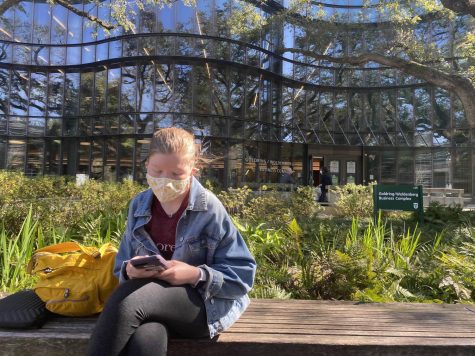Psych Gumbo: Hazing issue persists, Southern colleges top reports
October 1, 2014
The following is an opinion article and opinion articles do not reflect the views of The Tulane Hullabaloo.
Hazing is a practice often talked about on college campuses, particularly when students are considering which organizations to join. Despite strict rules banning this behavior, hazing still occurs regularly and is often considered a part of campus culture. The National Study of Student Hazing, released in March of 2008, included responses from 11,000 undergraduate students at 53 colleges and universities found that more than half of college students involved in campus organizations experience hazing.
The survey reports that hazing mainly occurs within varsity sports teams and Greek organizations. Southern and Midwestern schools were shown to have the greatest incidence of dangerous and illegal hazing.
Hazing is defined as any situation created intentionally that causes embarrassment, harassment, ridicule and/or physical harm to members of a group or team. Hazing and bullying are similar in nature, the difference being that bullying involves singling out a person to exclude them from a group, while hazing involves bullying a person to earn their way into a group.
Hazing rituals vary in severity along a continuum, ranging from subjectively mildly humiliating activities to those that result in severe psychological trauma, physical injury or death. The tragic consequences of hazing become evident when a person is physically injured or dies as a result of high-risk and illegal behaviors. The hidden psychological harms of hazing, however, can be just as dangerous. They are often ignored or overlooked because of a lack of understanding. These psychological harms can lead to serious mental health issues and even suicide.
Often, we don’t know or understand the past experiences of others, even those of our closest friends. Anyone can be susceptible to the psychological effects of hazing, People who have experienced past traumas, however, may be more susceptible to its psychological repercussions.
Furthermore, what may seem mildly humiliating to one person can be extremely humiliating and traumatic to another, making it difficult to determine if a given activity even qualifies as hazing. Questions to ask to help determine this include: Would you hesitate to describe this activity to your parents or the police? Are you doing anything illegal? Are you being asked to keep these activities a secret? Would you get in trouble if a school administrator walked by and witnessed the activity?
Despite evidence of the traumatic and deadly consequences, hazing remains prevalent within collegiate organizations. There are many psychological and social factors at play, including a need for group identification, the desire to boost self-esteem, an expression of power, a rite of passage and the continuance of a cycle of abuse.
Groups have the power to break this cycle. With some knowledge and creativity, the formation and bonding of these important groups can be accomplished through alternative activities.
Those who need help or want more information call Tulane’s 24-hour Hazing Hotline at 504-862-3111.
Holly Peek, MD/MPH, is a third year psychiatry resident at Tulane University School of Medicine. She can be contacted through her website at www.psychgumbo.com or [email protected].






















Leave a Comment